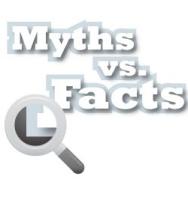 Over the next few days, we’re going to be addressing some myths and facts about auto insurance and what goes into rating your premiums. Navigating the world of auto insurance, and finding the policy with the best fit / price for your needs can be a frustrating experience. But armed with a little advance knowledge, you can key in on personal factors that really do make a difference in your car insurance premiums.
Over the next few days, we’re going to be addressing some myths and facts about auto insurance and what goes into rating your premiums. Navigating the world of auto insurance, and finding the policy with the best fit / price for your needs can be a frustrating experience. But armed with a little advance knowledge, you can key in on personal factors that really do make a difference in your car insurance premiums.
As much as it’s important to know the factors that actually impact your car insurance premiums, it’s also instructive to know what doesn’t really have an impact when some faceless voice on the other end of the phone (or an email) gives you a quote. Here are four items that really don’t have a major negative impact on your rates, and we’ll break each of these down in subsequent articles.
Myth: Car Insurance Premiums Increase as You Get Older
This simply isn’t true. Most auto insurers actually prefer older drivers. It’s just a fact of life that as you age, your driving habits change, in most cases for the better. Also, you have more experience behind the wheel, and likely have encountered many different driving scenarios (avoiding accidents, knowing how to drive in bad weather conditions, etc.).
Myth: The Color of Your Car Can Raise Your Car Insurance Premiums
False. While the type of vehicle you drive (sports car -vs- minivan) can certainly have an effect on your premiums, driving a flashy red car doesn’t mean you get dinged by your insurer. There are also no statistics that support the myth that a red car, regardless of model, is more likely than a blue car to be pulled over in a traffic stop.
Myth: Car Insurance Premiums are Higher for Members of the Military
In general, members of the military pay less than civilian counterparts in their age demographic. There are several reasons for this, but the perception of maturity (and the fact that military personnel generally drive less) results in auto insurers actually giving military members discounts.
Myth: Your Car Insurance Policy Covers All Damage to Your Car
Anyone who has ever driven an older car, and has basic liability insurance, knows that this isn’t true. Without a comprehensive insurance policy, if you get into an accident, repairs to your car (and even your medical bills) probably aren’t covered by your policy. Additionally, there are probably provisions in your policy that exclude storm or flooding damage to your vehicle.
In part two of this series, we’ll look at four more factors that may (or may not) negatively impact your car insurance premiums. The bottom line, as always, is check with your agent to make sure that you’re receiving the correct premium rating on your policy, and don’t be afraid to ask questions. A bit of knowledge about the myths of car insurance will help you to really focus in on the things that do matter when it comes to car insurance premiums.





